The integration of artificial intelligence (AI) into modern life has caused a great deal of speculation over its potential application in healthcare. With a large amount of data and complex decision making, the healthcare field seems primed for AI assistance—and that includes employee benefits.
But a new survey from HealthEquity reveals that while AI presents exciting possibilities, top benefits leaders have more learning to do before they feel comfortable implementing it in their work.
Conducted in February 2024, the survey asked more than 800 benefits leaders across the country and in a variety of industries to share their view of AI. Their answers reveal the current state of AI in benefits, as well as a fascinating look ahead into how these technologies could transform employee benefits for both employers and their people.
AI is still new to benefits administration
AI technologies have already had a profound impact on fields like software, education, and marketing. But their entry into employee benefits is still underway.
According to the HealthEquity survey, benefits leaders are being approached by vendors offering AI solutions, but only somewhat frequently. Sixty-eight percent of survey respondents say they hear about these products at least once a month, leaving nearly one-third (32%) who say they hear about AI less often.
Perhaps because of this, benefits leaders rate their personal knowledge of AI solutions modestly. Just 4% say they strongly agree that they are knowledgeable about current AI solutions in the field, while 23% neither agree or disagree.
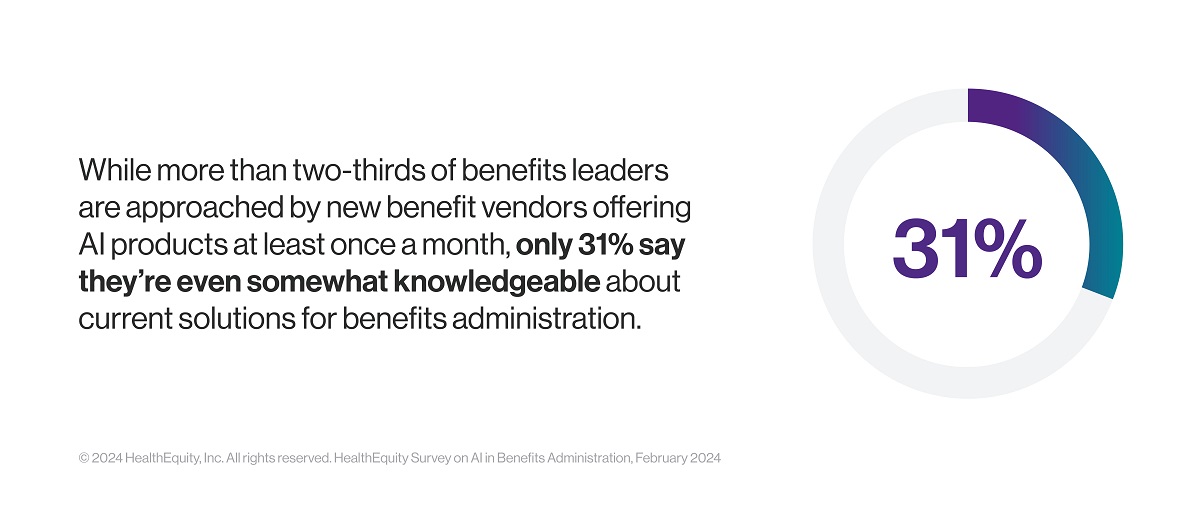
Benefits leaders are similarly neutral on their interest in partnering with vendors that use AI. When asked if they were likely to choose a benefits partner incorporating AI into their solutions, a full 46% said they neither agreed nor disagreed. Only 10% strongly agreed, though 36% said they agreed somewhat and only 1% strongly disagreed.
Greater understanding leads to greater optimism about AI
Although the use of AI in benefits administration is still emerging, top benefits leaders seem cautiously optimistic about its potential.
More than 70% of survey respondents say they believe AI will have a positive impact on benefits administration, with only 6% indicating disagreement. Even among respondents who say they have relatively low knowledge on AI, the majority believe AI will have a positive impact on the industry.
That positive sentiment only increases as benefits leaders learn more about AI. Among those who strongly agree they’re knowledgeable about AI, 92% believe AI will have a positive impact. And 85% say they’re likely to choose a benefits partner that uses AI.
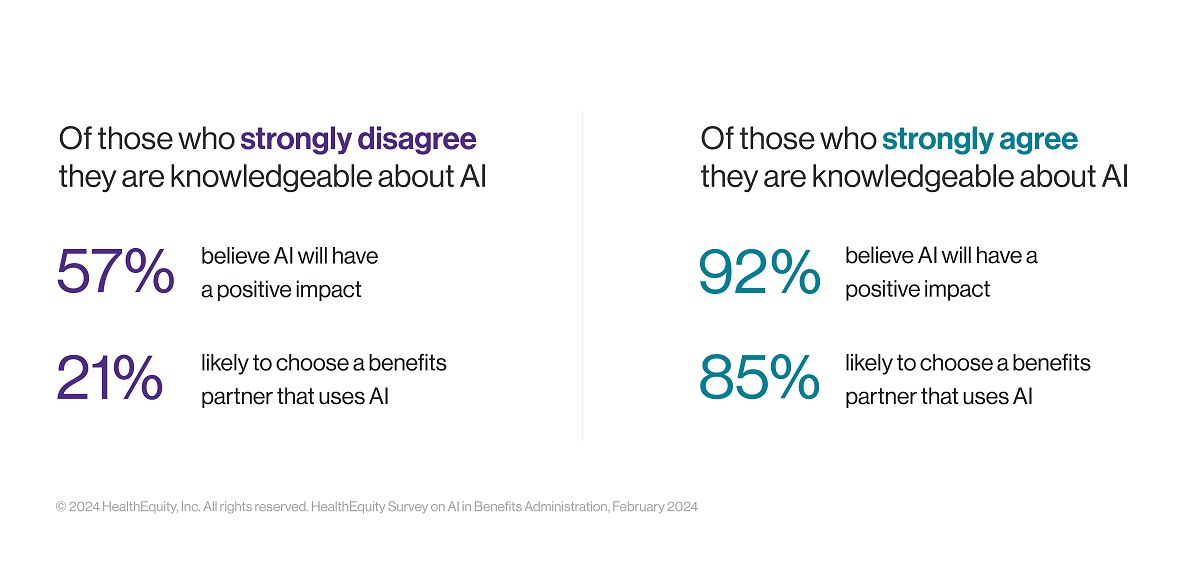
Health plan recommendations and access to care are among biggest opportunities for AI
The reason behind the industry’s AI optimism lies in its potential utility for both benefits leaders and the employees they serve.
When asked to rank possible opportunities for the use of AI in benefits, survey respondents expressed positivity across a wide variety of areas. The recommendation of health plans and improvement of member access to care ranked particularly highly.
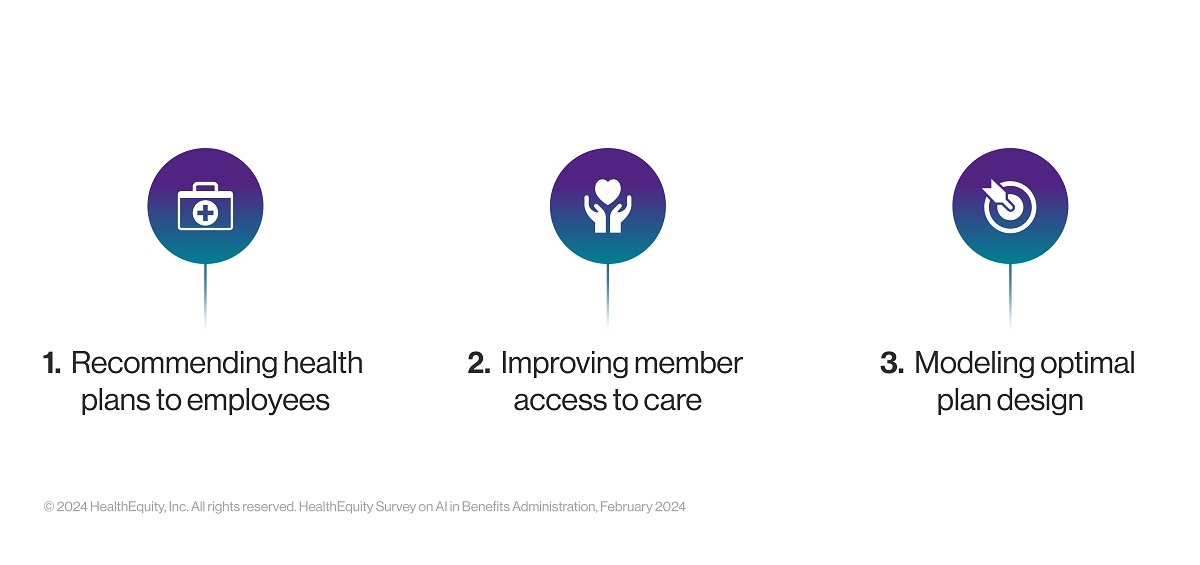
These responses echo sentiments in the larger healthcare community. A number of AI startups are targeting health plan selection as a prime opportunity for artificial intelligence, which could potentially reduce the number of employees who avoid shopping for healthcare by remaining in their preexisting—and potentially less optimal—plan.
Benefits leaders also feel AI outcomes could align with their larger benefits goals. When asked why they would choose a benefits partner with AI solutions, survey respondents said improving benefits’ effectiveness, saving time, and improving employee wellbeing were their primary motivations.
Overall, benefits leaders are eager for solutions that both streamline the administrative process and personalize—and improve—the employee experience.
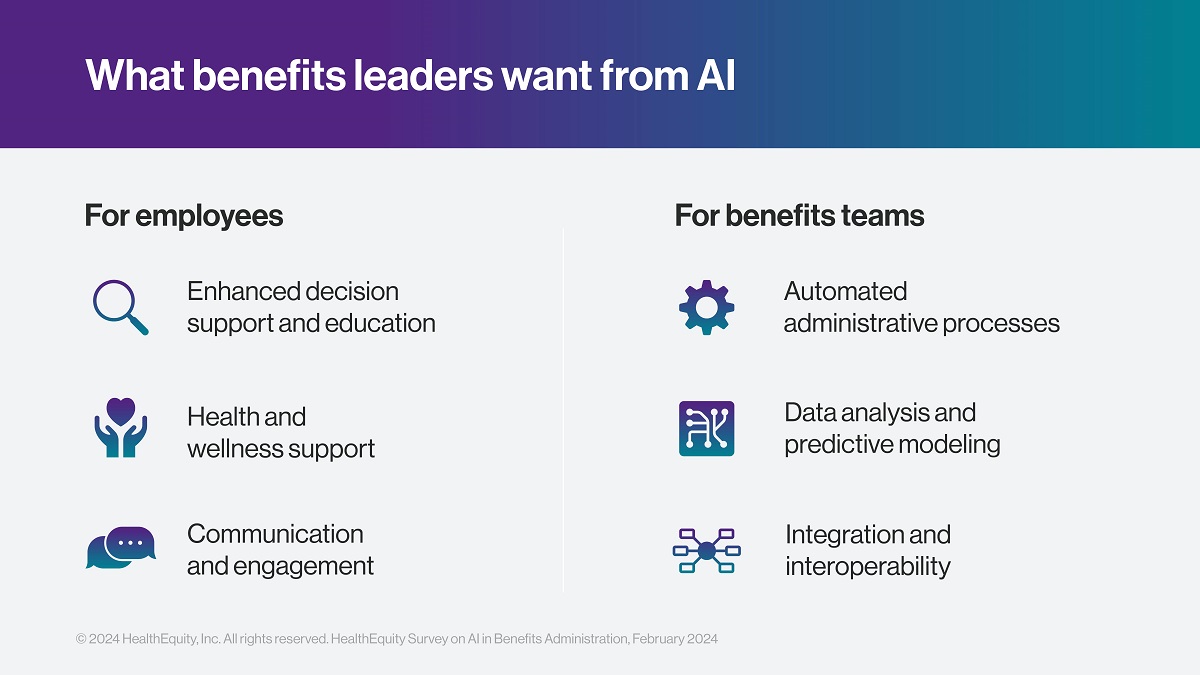
Data security and accuracy lead benefits leaders’ concerns
“Is it really accurate? We’ve seen AI in practice, and it can be frustrating how wrong it can be when asked a question.” -Survey respondent
While benefits leaders are optimistic about the potential of AI, that optimism is a cautious one. Many retain concerns over the use of AI, particularly when it comes to data security and accuracy. Benefits leaders also worry over employee experience and stress their desire to retain a “human touch” with the employees they serve.
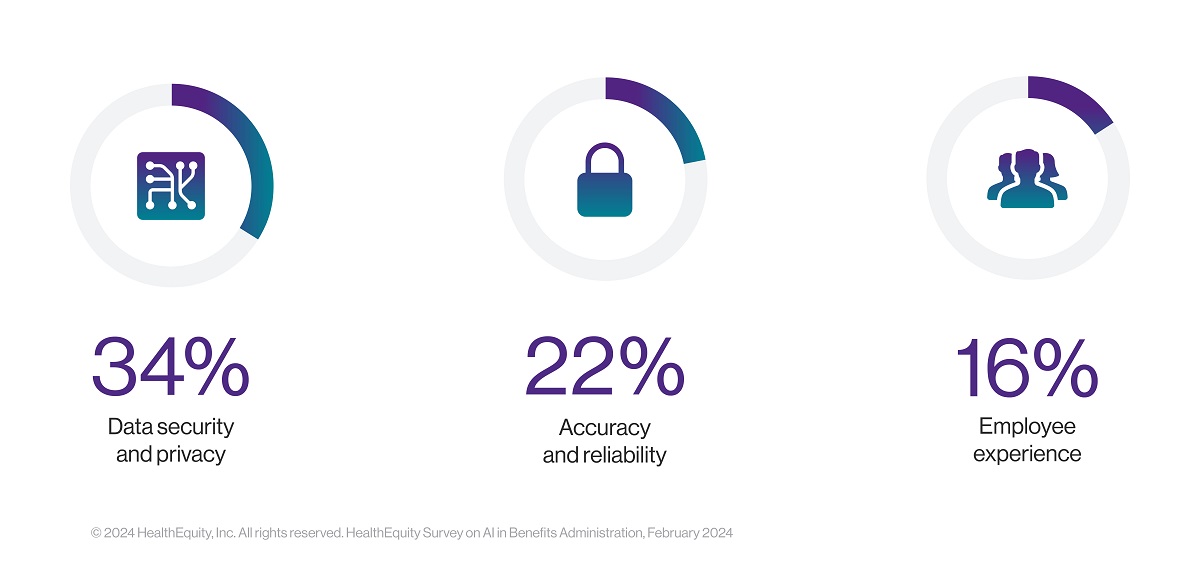
When asked about these concerns specifically, benefits leaders stressed that they prioritize employees’ ability to interact with benefits in a secure, reliable, and simple way. With AI largely new, they want greater confidence in its ability to deliver these outcomes.
“How can AI determine the difference between ‘cost effective’ and ‘best choice’ for the participant?” -Survey respondent
What is the future of AI in benefits administration?
We are still witnessing the early stages of AI’s entry into the employee benefits space. As AI continues to integrate into the larger healthcare industry, however, benefits leaders look forward to the improvement of the employee benefits experience through AI.
Though concerns remain, many leaders are hearing more about current AI solutions and updating their vision of what AI could do for their teams and their employees. If concerns on data security and reliability are heeded, benefits teams could see more efficient work processes while the employees they serve could enjoy more personalized services that improve their health and wellness.
“From healthcare affordability to benefits cost savings, AI can be harnessed to model both future challenges for employees but also positive potential future impact if recommended steps are taken,” said Shuki Licht, VP of Innovation for HealthEquity.
Check back regularly for more insights into AI and benefits administration, as well as updates on changing industry impressions.
HealthEquity does not provide legal, tax or financial advice.


